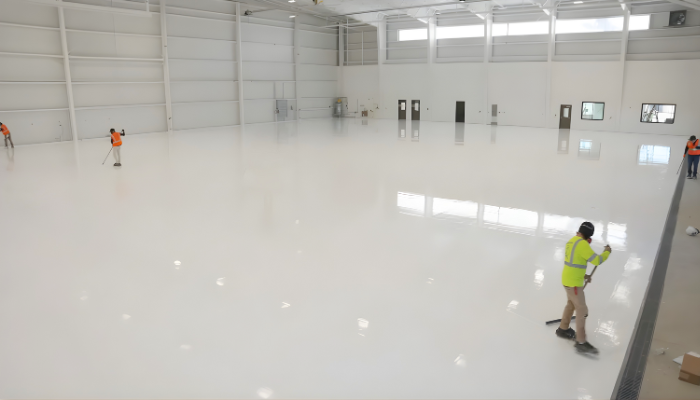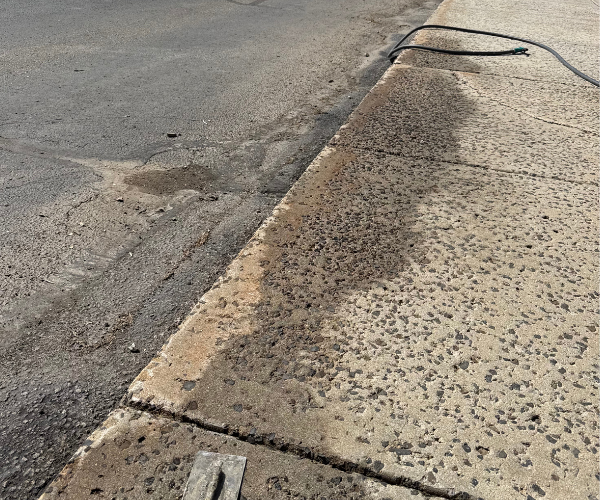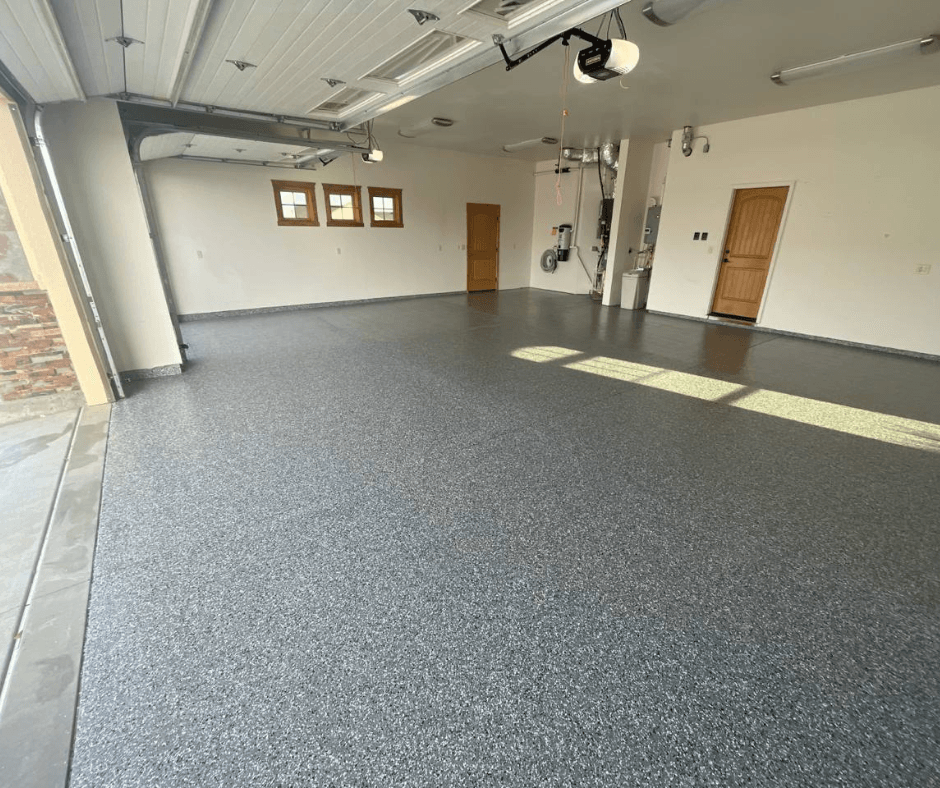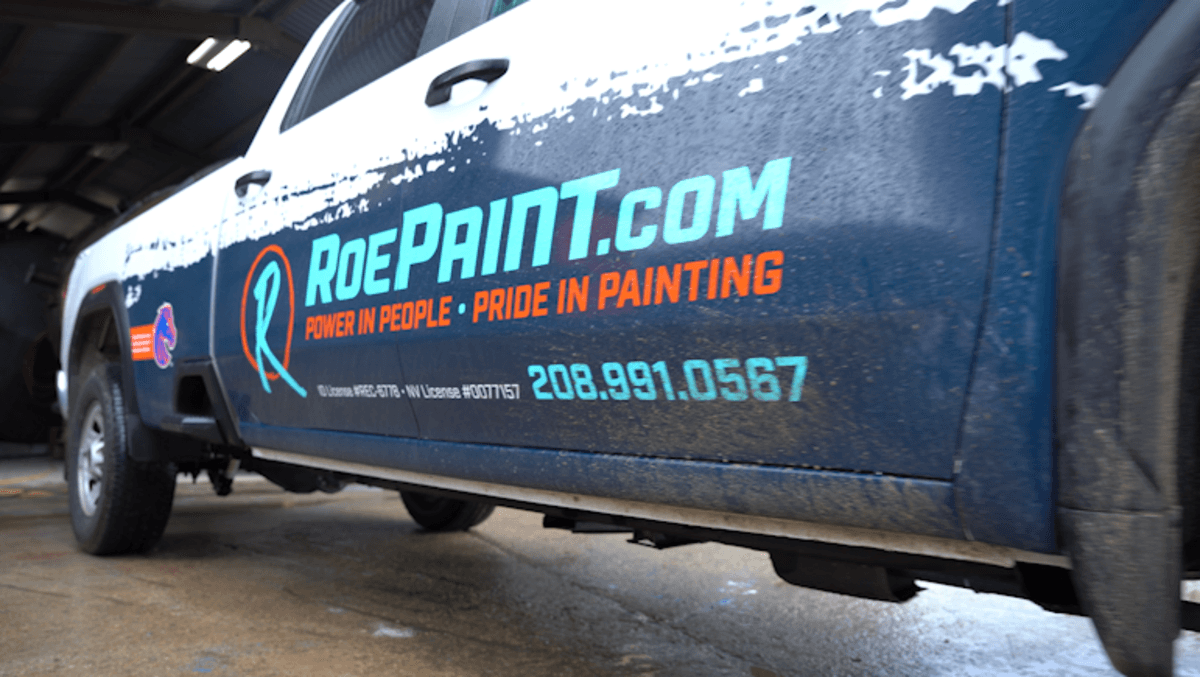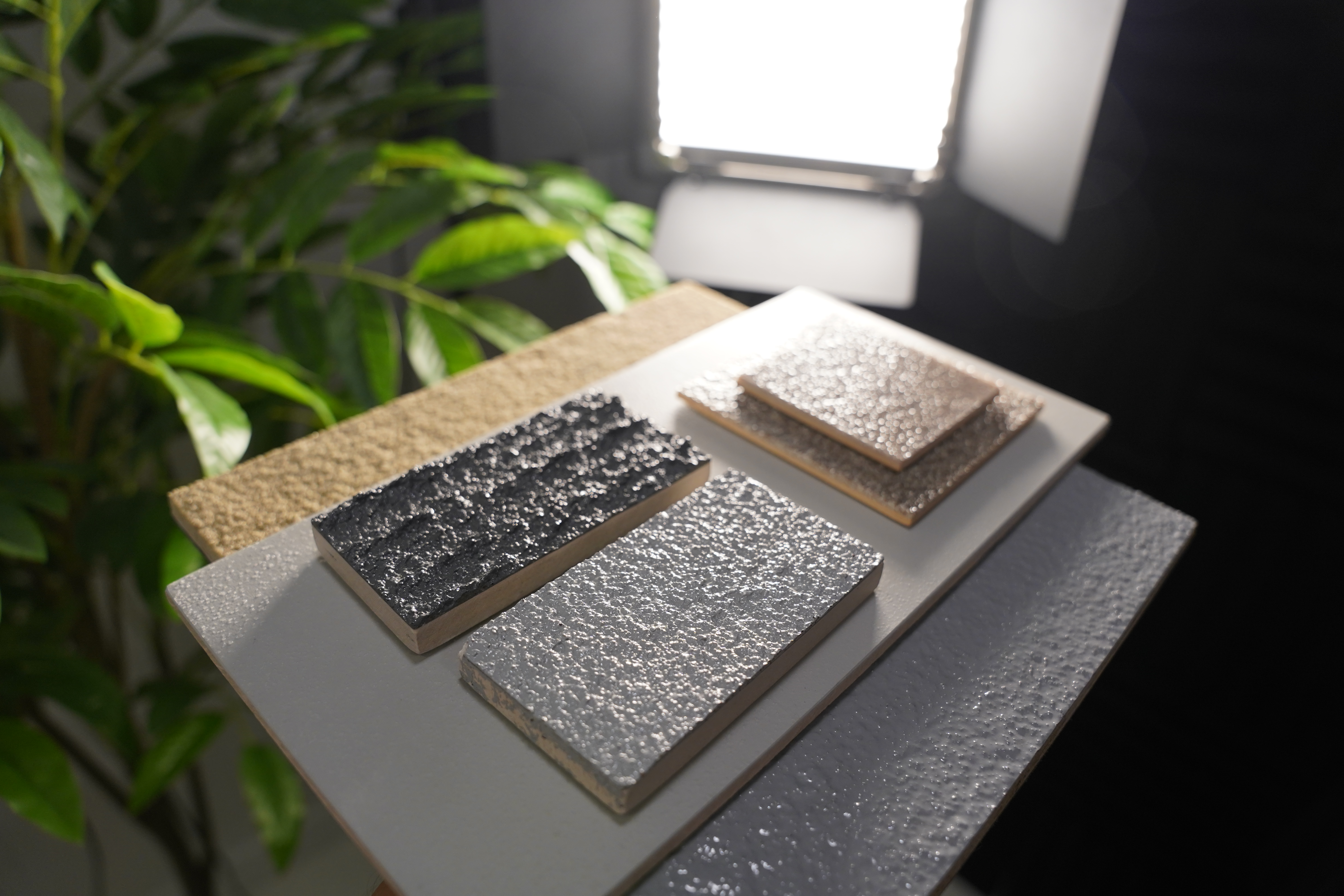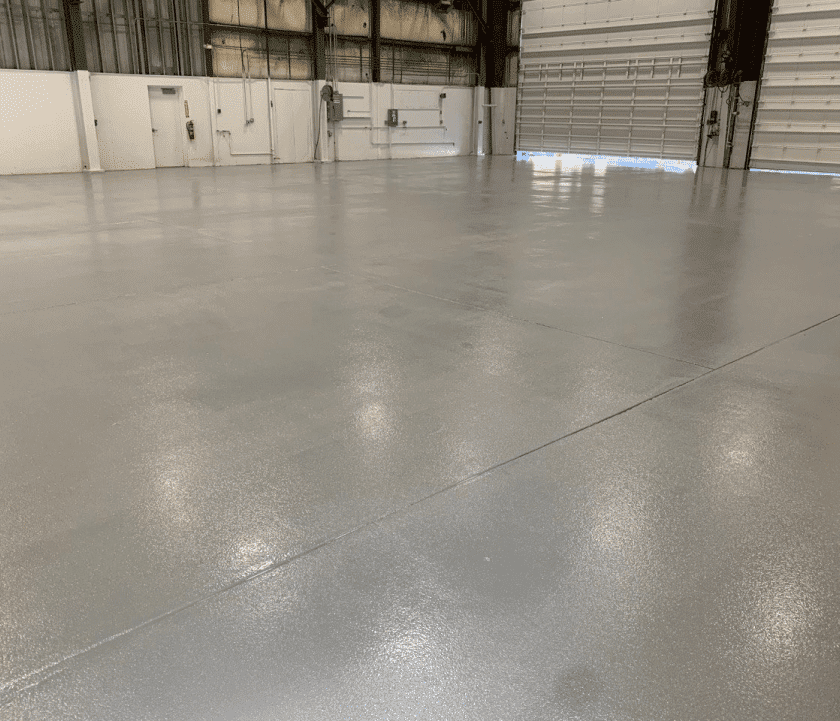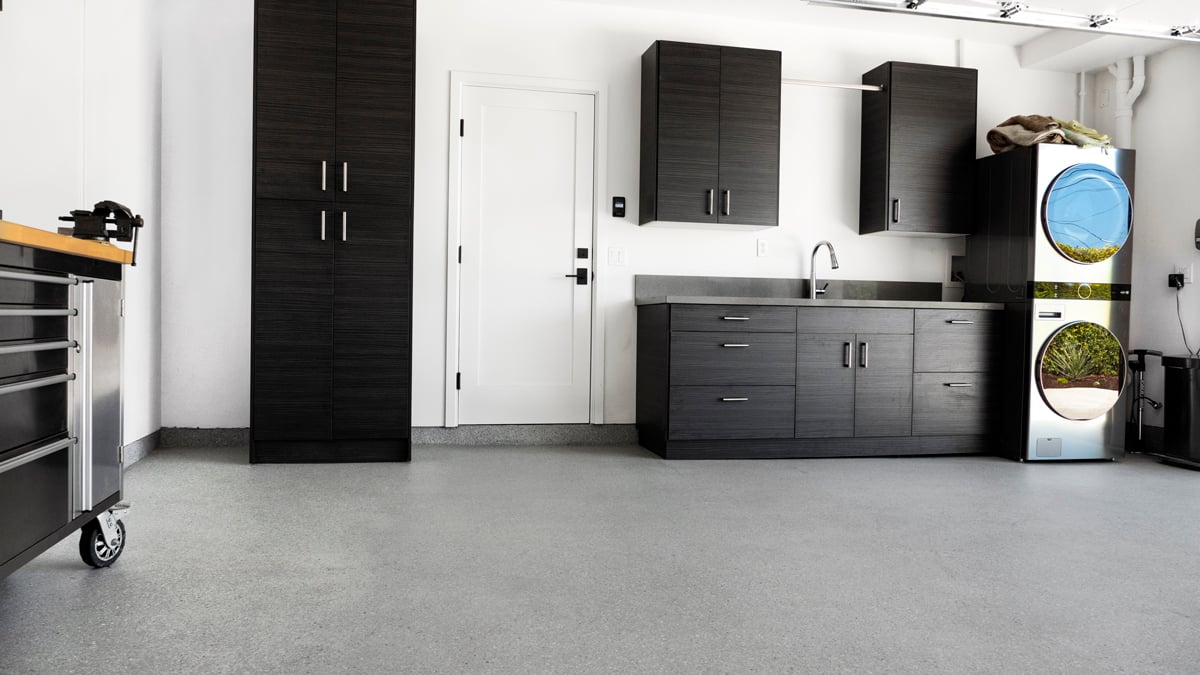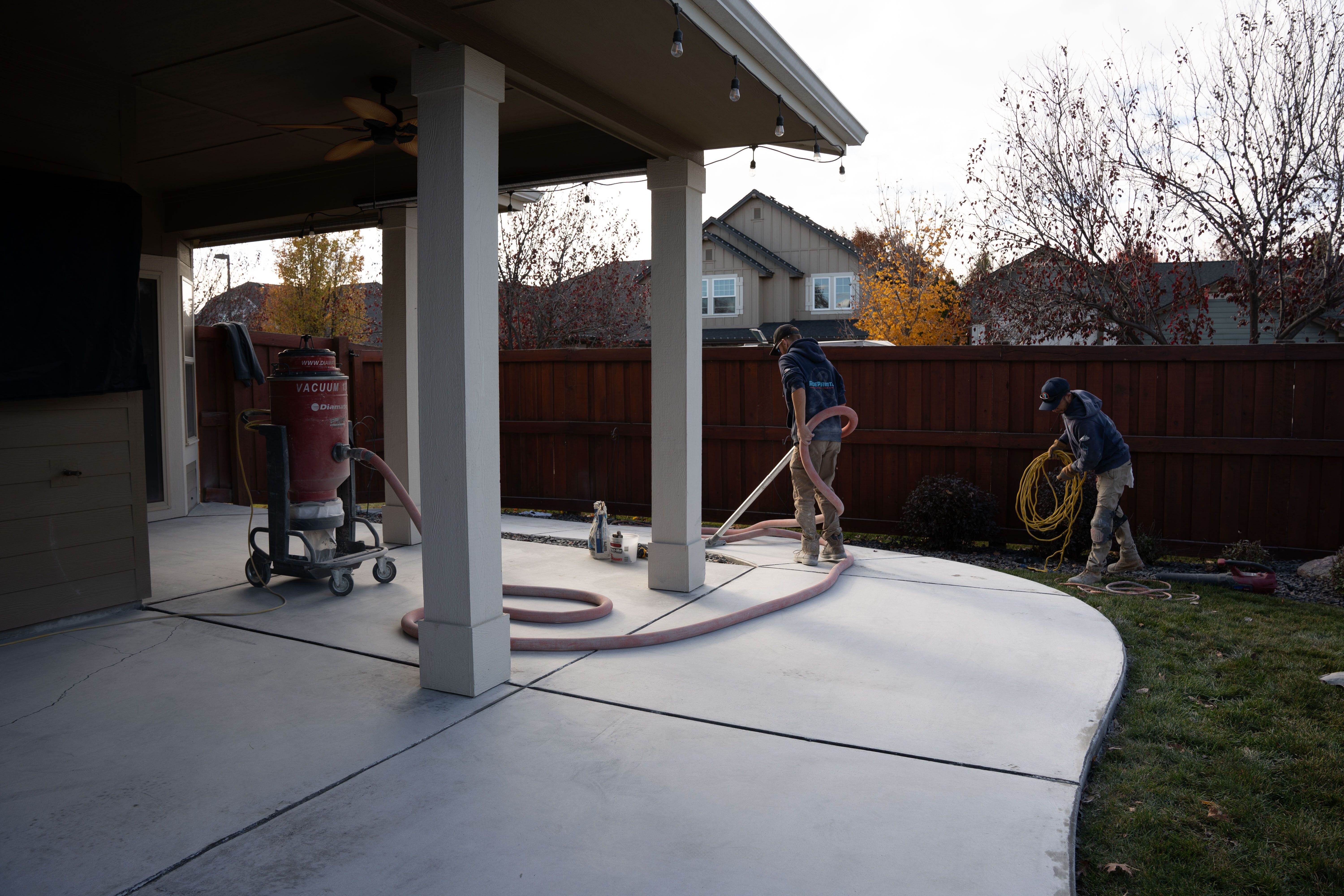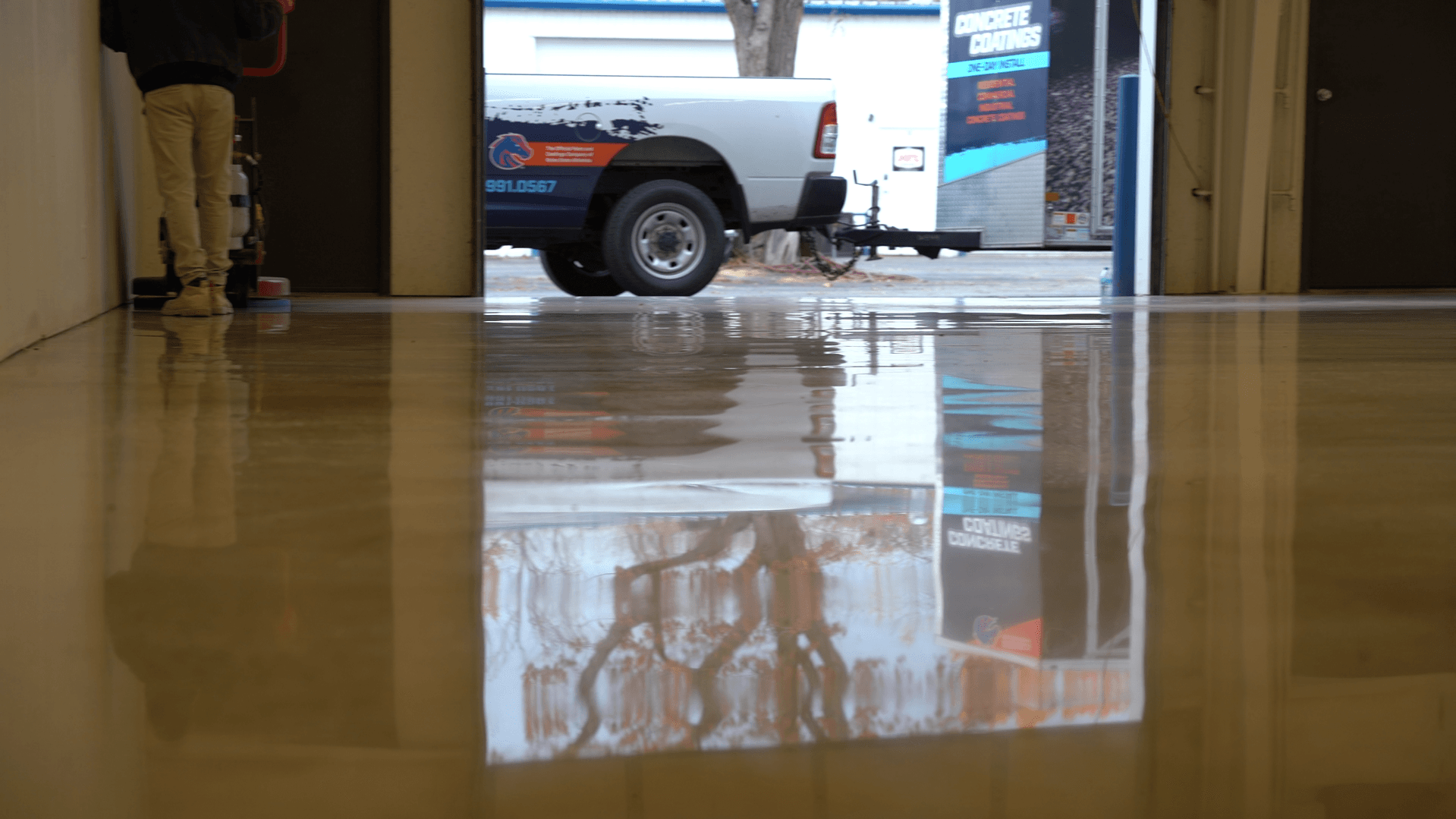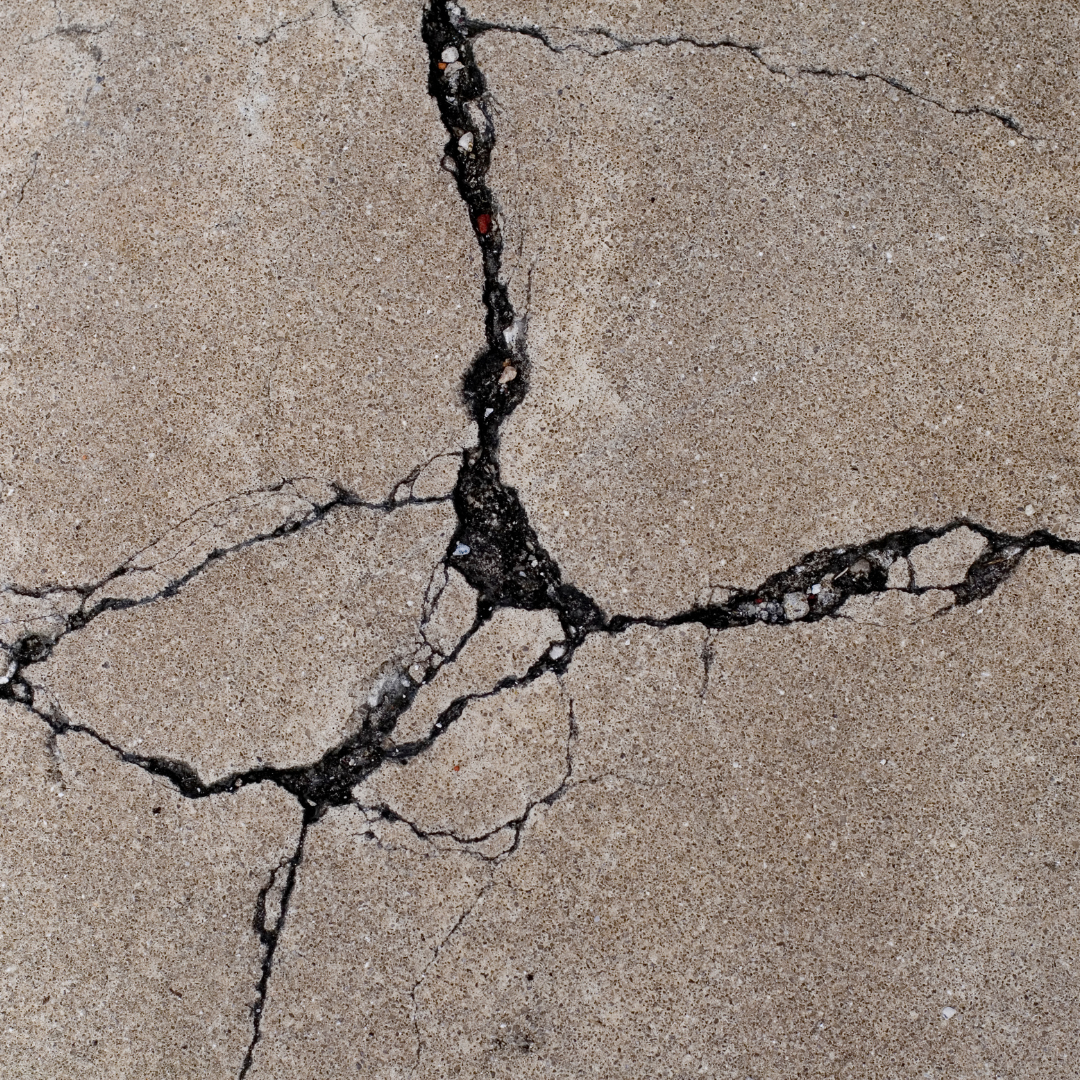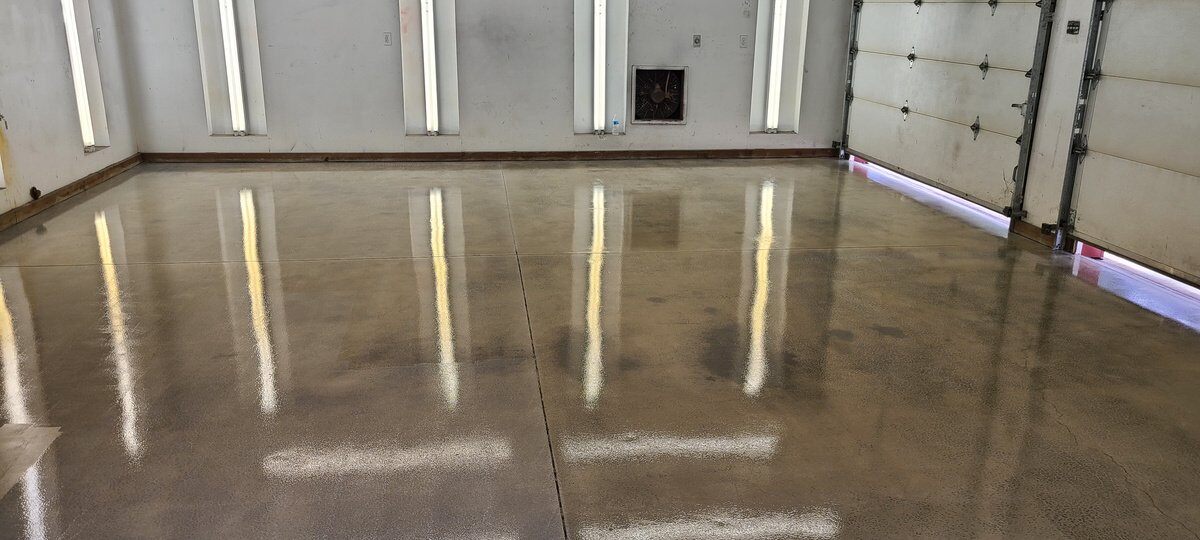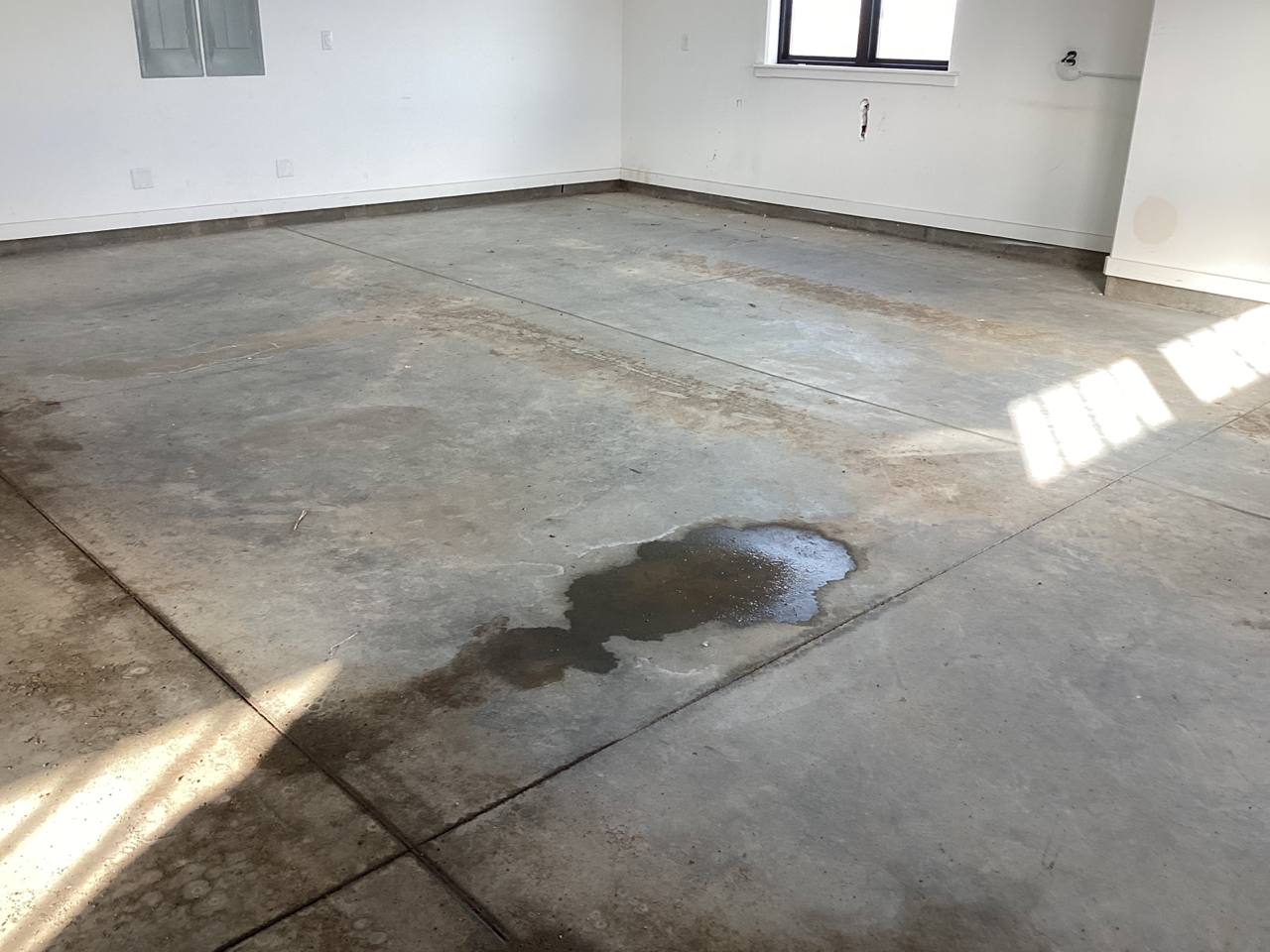Antimicrobial Concrete Floor Coatings: Safer Spaces for Food and Medical Facilities
October 6th, 2025
4 min read
By Jud Masters
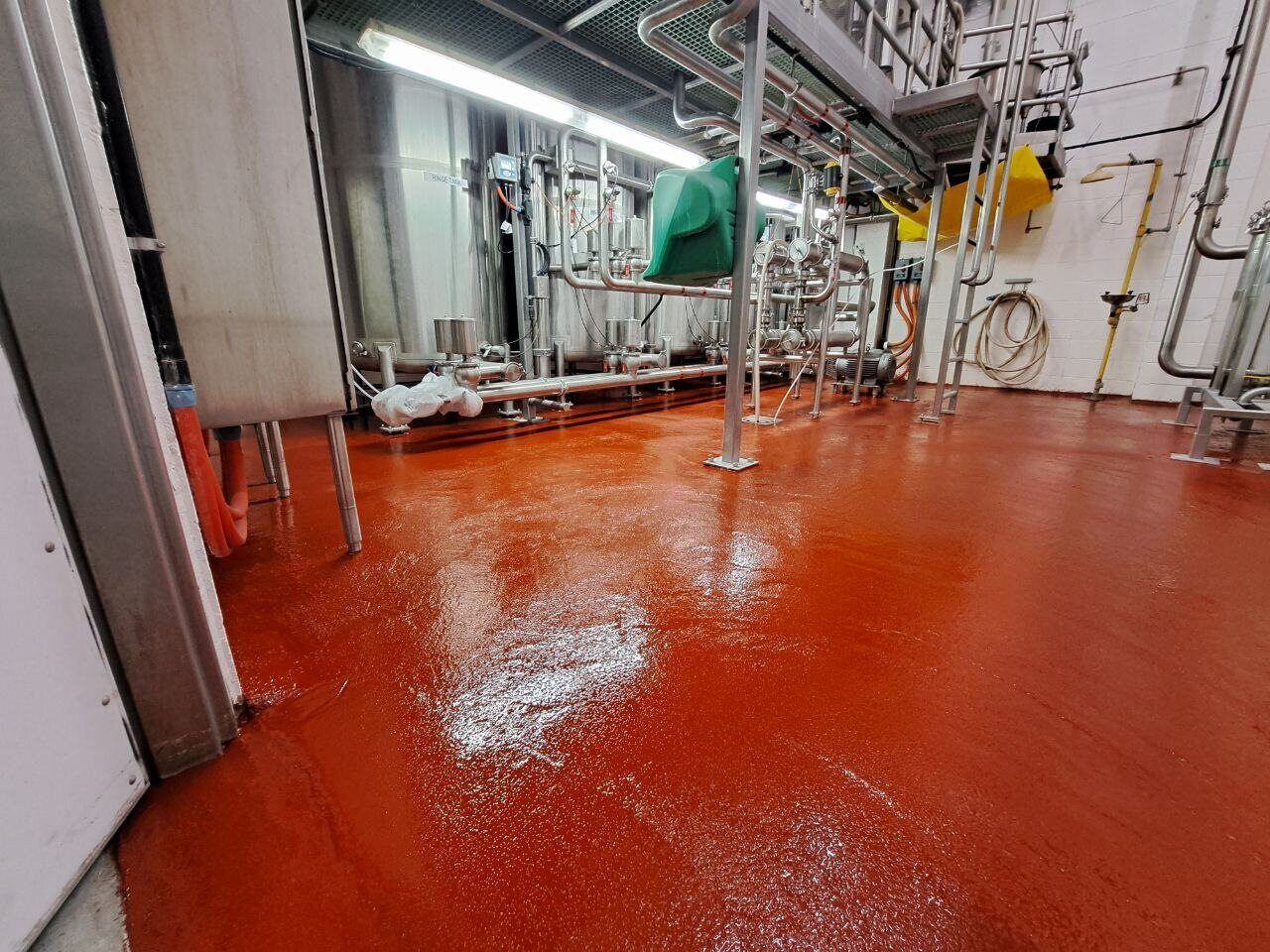
For facilities where cleanliness is non-negotiable, flooring matters more than most people realize. Antimicrobial concrete floor coatings give food processors, hospitals, and commercial kitchens an added layer of protection by preventing bacteria from multiplying on the surface.
They won't replace regular cleaning, but they do make it easier to maintain a safe, compliant environment and show inspectors you're serious about sanitation. At Roe Painting, we help businesses across Idaho and northern Nevada upgrade their floors with antimicrobial systems designed for peace of mind.
In this article, we'll cover:
- How Antimicrobial Coatings Work
- Systems that Support Antimicrobial Additives
- Antimicrobial Floor Coating and Compliance Standards
- Case Study: Capitol Distributing
- Where to Use Antimicrobial Additives
- Misconceptions about Antimicrobial Floor Coatings
How Antimicrobial Coatings Work
Antimicrobial coatings aren't a different type of floor. They are standard epoxy, polyurethane, polyaspartic, or urethane cement systems enhanced with a powerful additive: ionic silver. This component is added to the finish coat, where it becomes a permanent part of the coating system.
Here's what makes it so effective:
- Prevents bacterial growth: Ionic silver disrupts the conditions bacteria need to multiply, keeping surfaces from becoming a breeding ground.
- Invisible protection: The additive doesn't change the coating's appearance. Clear stays clear, colors stay true, and performance specs remain the same.
- Long-lasting: The antimicrobial properties last as long as the floor itself. When it's time for a new topcoat years down the road, the additive can be included again.
John Barnett, our Concrete Coatings Division Lead, says, "Antimicrobial coatings don't stop bacteria from being in the space. They just keep it from growing. The ionic silver additive creates an environment where bacteria can't multiply."
For best results, smooth surfaces offer fewer places for bacteria to hide. On slip-resistant or textured floors, antimicrobial coatings still work, but consistent cleaning is especially important.
Systems That Support Antimicrobial Additives
The good news is that antimicrobial protection can be built into the most common floor coating systems. At Roe Painting, we incorporate the additive into:
- Epoxy
- Polyurethane
- Polyaspartic
- Urethane cement (in the topcoat)
The only exception is cementitious products, which aren't compatible with ionic silver. However, if a cementitious layer is required, a poly topcoat with antimicrobial properties can be applied over it.
Because the additive becomes part of the coating itself, it doesn't alter durability, chemical resistance, or appearance. And the cost is surprisingly minimal—adding antimicrobial protection typically increases material costs by only about $1 per gallon.
Antimicrobial Floor Coatings and Compliance Standards
For industries where sanitation is tightly regulated, antimicrobial coatings help facilities stay ahead of requirements. By using coatings enhanced with ionic silver additives, businesses can demonstrate compliance with agencies like the FDA, USDA, and OSHA.
"If a facility can show they've used antimicrobial coatings, that checks one important box with the FDA, USDA, or OSHA," says Barnett, "We always provide documentation, so customers have proof for their records."
Benefits of Antimicrobial Floor Coatings
These are just some of the key benefits that you can expect from choosing antimicrobial floor coatings:
- Easier inspections: Documented antimicrobial flooring can support higher ratings from health departments and regulatory bodies.
- Stronger safety culture: Staff, patients, and customers know the floor isn't a surface where bacteria can thrive.
- Lasting protection: The antimicrobial properties remain effective as long as the coating is intact, often 8 to 12 years, and can be reapplied along with a fresh topcoat.
Roe Painting provides full documentation of the products we install, giving customers peace of mind and a clear paper trail for inspectors.

Case Study: Antimicrobial Floor Coating at Capitol Distributing in Caldwell, Idaho
One of the best ways to understand the value of antimicrobial floor coatings is to see them in action. Recently, we completed a project for Capitol Distributing in Caldwell, Idaho. The facility needed a flooring solution that was both antimicrobial and slip-resistant for their food-handling areas.
The Project:
- System Installed: Sherwin-Williams 3746 Epoxy, topcoat with an antimicrobial additive.
- Coverage: Both the flat flooring and cove base were coated for full protection and easier cleaning.
- Safety Upgrade: An angular aluminum oxide aggregate was broadcast into the topcoat to improve traction on a sloped, wet surface.
- Result: A durable, easy-to-clean system that supports food safety compliance and helps Capitol Distributing maintain a sanitary environment.
Where Antimicrobial Floor Coatings Are Used
Antimicrobial flooring isn't limited to one industry. It's valuable anywhere sanitation and safety are top priorities. The most common applications include:
- Food Processing and Beverage Bottling: Reduces the risk of bacteria near production lines and helps facilities meet USDA and FDA standards.
- Medical Facilities: Ideal for operating rooms, ERs, sterilization areas, kitchens, and restrooms where bacterial control is critical.
- Commercial Kitchens and Cafeterias: Supports daily cleaning routines and keeps prep areas safer.
- Schools and Institutions: Cafeterias, food prep spaces, and other high-traffic food service areas benefit from added protection.
In Idaho and northern Nevada, we see the greatest demand from food processing plants and healthcare facilities, but the technology is flexible enough to serve a wide range of industries.
Misconceptions About Antimicrobial Floor Coatings
Even though antimicrobial coatings are straightforward, there are a few misunderstandings worth clearing up. Barnett says that it's easy for people to think antimicrobial flooring will do the work. "A lot of people think antimicrobial coatings kill bacteria or mean you don't have to clean as much," he remarks. "That's not true. The additive doesn't kill. It just stops growth. Cleaning and disinfection are still essential."
Myth: These coatings kill bacteria on contact.
Fact: Antimicrobial additives don't kill bacteria. They prevent it from multiplying on the floor's surface. Regular cleaning and disinfection are still essential.
Myth: If I install antimicrobial flooring, I don't have to clean as often.
Fact: The floor still needs to be cleaned and disinfected on schedule. The additive works alongside sanitation practices, not in place of them.
Myth: Adding antimicrobial properties will change how the coating performs.
Fact: The additive doesn't affect durability, chemical resistance, or appearance. The coating performs exactly as it would without it, with the added benefit of bacterial growth prevention.
Key Takeaways About Antimicrobial Floor Coatings
- Stop bacteria from multiplying: Ionic silver additives prevent growth on the surface.
- Works with most systems: Compatible with epoxy, polyurethane, polyaspartic, and urethane cement (topcoat).
- Supports compliance: Helps facilities meet FDA, USDA, and OSHA requirements.
- Minimal added cost: Typically about $1 per gallon of product.
- Trusted local installation: Roe Painting installs antimicrobial concrete floor coating systems for food, medical, and other facilities across Idaho and Nevada.
A Smarter Way to Protect Your Facility
Antimicrobial floor coatings aren't a replacement for cleaning and disinfecting, but they do add an extra layer of protection in environments where sanitation matters most. By preventing bacteria from growing on the surface, these coatings help food processors, hospitals, and other facilities create safer, more compliant spaces.
At Roe Painting, we've installed antimicrobial systems across Idaho and northern Nevada, including food processing plants and medical facilities where inspections and compliance are critical. Our team knows how to pair antimicrobial protection with slip resistance, durability, and long-lasting finish, and we provide the documentation you need for peace of mind during inspections.
If you're considering antimicrobial coatings for your facility, we'd love to help you explore your options. Request a free consultation to learn more.
Jud has been with Roe Painting since 2017 and in the painting industry as a whole since 1999. He has a passion for estimating and selling a wide variety of painting projects. As the son of two teachers, he loves to educate his customers on what they should expect in a proper paint job. As VP of Sales, he enjoys developing estimating programs and teaching and coaching his sales team to deliver a confident contracting experience for every customer.
Topics:
